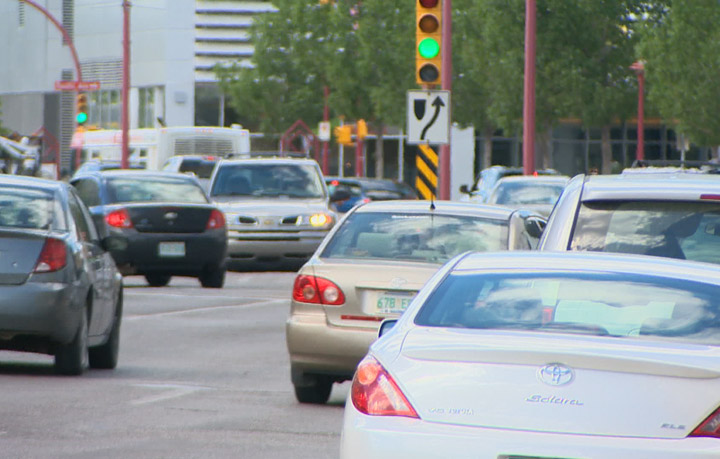MONCTON, N.B. – New Brunswickers are the most dependent on their cars in the country, according to a new study. And it’s having a negative impact on the economy.

The study found 35.2 per cent of workers lived somewhere else compared to 20.6 per cent in the rest of Canada. This means N.B. residents are more likely to use a car to commute to work – 90.4 per cent compared to the national average of 78.6 per cent.
New Brunswickers also put 15 per cent more kms on their vehicles than the rest of the country.
The study’s author Yves Bourgeois, the Director of the Urban and Community Studies Institute, said while Atlantic Canada prides itself on its low-cost of living, things like groceries actually cost more, because it is harder to transport the goods.
New Brunswick residents spend about 20 per cent of their household income on transportation, according to Bourgeois, while in cities like Montreal or Toronto, the average amount is only 11 or 12 per cent.
“Because it costs so much more on the user, that means we have less money in our wallets at the end of the year. That means we spend less money on savings, on retirement, less money on our kids education,” he said.
The study also found the reliance on cars was having an impact on immigration.
The N.B. government has said that attracting newcomers is a key goal to keep up with an aging workforce and a declining population. But the study found many immigrants were leaving the area within 5 years, in part because of the better transportation infrastructure in other cities. Newcomers were 15 per cent more reliant on public transit than other New Brunswickers.
- ‘Shock and disbelief’ after Manitoba school trustee’s Indigenous comments
- Canadian man dies during Texas Ironman event. His widow wants answers as to why
- Several baby products have been recalled by Health Canada. Here’s the list
- ‘Sciatica was gone’: hospital performs robot-assisted spinal surgery in Canadian first
Marianne Tardy, the managing Director of CAFI, an immigrant welcoming centre for French-speaking immigrants to the region, said she has heard many stories that support these findings.
“Unfortunately, we have some cases like this,” Tardy said. “Like, I don’t have a car, I don’t want a car, and I’m just going to go to Quebec, it’s easier like this.”
Tardy says she knows of other families who are considering leaving the area.
“The whole family, they have no licence,” she said. “This is really, really hectic for them because for doing shopping, for going to sports or music lessons, it’s really strange, and for them it’s very difficult. So for them, they are thinking about leaving the area because of that.”
Bourgeois said transportation is an issue that has an impact on other issues and it can undermine or help other areas of society.




Comments